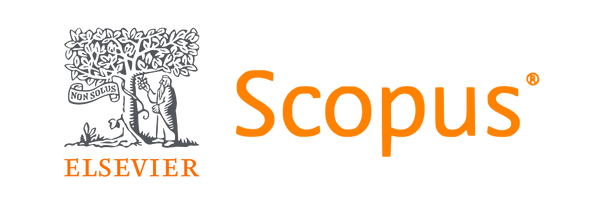THE STUDY OF SOCIAL JURIDIC AGAINST IMPLEMENTATION OF WAKAF IN MAKASSAR
Abstract
Waqf is a legal act that lives, grows, and develops in the life of the Islamic community as one of the religious institutions that are considered capable of improving the welfare of the people. Along with this, the government has established organic legal products as a basis for optimizing the implementation of representation during community life through Law Number 41 of 2004 concerning Waqf. For this reason, this study analyzes the effectiveness of the application of legal products in improving the welfare of the people in Makassar City. The socio-juridical approach used during the research process. Observations, in-depth interviews, and document searches applied during data collection. The research confirms that the management of waqf has not run optimally as the basis for reference in legal products about waqf. The waqf not optimally because the socialization factor does not run optimally. Besides, the use of waqf objects that have not professionally managed leads to productive waqf. The factors that happen because it is a factor of understanding about waqf by Muslims. Waqf object factors, and factors of waqf management and professionalism of Nazir because it is very urgent to advocate the community and Nazir to optimally develop the potential waqf that has been represented by the community.
Keywords
Full Text:
PDFReferences
Al-Nawawi, Y. bin S. (1994). Shahih Muslim bi syarh an-Nawawi. Juz 10. Mu’assasah Qurthubah.
Hadi, S. (2018). Pemberdayaan Ekonomi Melalui Wakaf. Jurnal Zakat Dan Wakaf, 4(2), 229–244.
Hermawan, W. (2014). Politik hukum wakaf di Indonesia12(2), 147-161. Jurnal Pendidikan Agama Islam-Ta’lim, 12(2), 147–161.
Mantu, R. (2018). Islam dan Konstitusi: Analisis-Komparatifantara Teks Al-Quran dengan Pasal 29 UUD 1945. Jurnal Ilmiah Al-Syir’ah, 16(1).
Mu’allim, A. (2017). Ijtihad Ekonomi dalam Pengelolaan Aset Wakaf. AL-’ADALAH, 14(2), 291–310.
Munir, Z. A. (2013). Revitalisasi Manajemen Wakaf Sebagai Penggerak Ekonomi Masyarakat. Journal de Jure, 5(2).
Muntaqo, F. (2015). Problematika dan Prospek Wakaf Produktif di Indonesia. Al-Ahkam, 1(25), 83–108.
Prasetyo, L. (2017). Kedudukan Hukum Pengambilalihan Tanah Wakaf Yang Batal Demi Hukum Untuk Dibagikan Sebagai Harta Warisan Dalam Kajian Undang-Undang No. 41 Tahun 2004 Tentang Wakaf. Jurnal Ius Constituendum, 2(1), 77–95.
Rosadi, A. (2019). Zakat dan Wakaf Konsepsi, Regulasi, dan Implementasi. Jakarta: Simbiosa Rekatama Media.
Said, S., & Amiruddin, A. M. A. (2019). Wakaf Tunai dan Pemberdayaan Ekonomi Masyarakat. Al-Mashrafiyah: Jurnal Ekonomi, Keuangan, Dan Perbankan Syariah, 3(1), 43–55.
Triyanta, A., & Zakie, M. (2014). Problematika Pengelolaan Tanah Wakaf: Konsep Klasik dan Keterbatasan Inovasi Pemanfaatannya di Indonesia. Jurnal Hukum IUS QUIA IUSTUM, 21(4), 583–606.
DOI: http://dx.doi.org/10.30984/jis.v18i1.960
Article Metrics
Abstract view : 1740 timesPDF - 805 times
Refbacks
- There are currently no refbacks.
Copyright (c) 2020 Jurnal Ilmiah Al-Syir'ah

This work is licensed under a Creative Commons Attribution-NonCommercial-ShareAlike 4.0 International License.
Rumah Jurnal IAIN Manado
Jl. Dr. S.H. Sarundajang, Kawasan Ringroad I, Malendeng Manado Kode Pos 95128, Sulawesi Utara, Indonesia.

All publication by Jurnal Ilmiah Al-Syir'ah are licensed under a Creative Commons Attribution 4.0 International licence.
Jurnal Ilmiah Al-Syir’ah, ISSN 1693-4202 (Print), ISSN 2528-0368 (Online)







